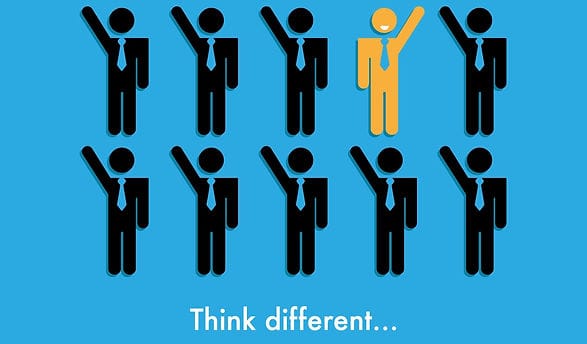Mind Games: The Psychology of Storytelling in Advertising and How Small Businesses Can Harness Its Power
Welcome to the fascinating world where psychology meets marketing, where the ancient art of storytelling intersects with cutting-edge neuroscience.

In the bustling marketplace of ideas and products, small businesses often find themselves wondering: How can we stand out? How can we make our message stick? The answer might lie not in louder advertisements or flashier graphics, but in the subtle art of storytelling—and the science behind it.
Welcome to the fascinating world where psychology meets marketing, where the ancient art of storytelling intersects with cutting-edge neuroscience.
Buckle up, small business owners, as we embark on a journey through the human mind and discover how you can use the psychology of storytelling to create advertising that doesn't just speak to your audience, but resonates with their very being.
The Psychological Power of Stories
First things first: why are stories so powerful? It turns out, our brains are hardwired for narrative.
"The human mind is a story processor, not a logic processor," says Jonathan Gottschall, author of "The Storytelling Animal." This isn't just poetic musing—it's backed by hard science.
When we encounter raw data, only the language processing parts of our brains get activated. But when we hear a story, something magical happens. Not only do the language processing parts come alive, but any other area in our brain that we would use when experiencing the events of the story activates too.
This is why a well-told story about a delicious meal can make our mouths water, or why a tense narrative can leave us with sweaty palms. Our brains, in essence, can't always tell the difference between a story and reality.
The Psychology Toolkit: Key Concepts for Small Business Storytellers
Now that we understand why stories are so powerful, let's explore some key psychological concepts that can make your advertising more effective:
1. The Identifiable Victim Effect
Research shows that people are more likely to help a single identifiable individual rather than a large, anonymous group. This is why charity advertisements often focus on one child's story rather than quoting statistics.
Small Business Application: Instead of talking about how your product has helped thousands, tell the story of one customer whose life was changed. For example, a local gym could share the transformation story of a single member, complete with their challenges, journey and triumph.
2. The Availability Heuristic
This cognitive bias leads people to make judgments about the likelihood of an event based on how easily an example comes to mind. Stories make information more available to our minds, thus seeming more likely or important.
Small Business Application: Use storytelling to make the benefits of your product or service more vivid and memorable. A home security company, for instance, could tell stories of how their system prevented break-ins, making the need for security feel more immediate and important.
3. The Pratfall Effect
Surprisingly, admitting to a minor flaw can make you more likeable and trustworthy. This psychological quirk shows that vulnerability can be a strength.
Small Business Application: Don't be afraid to show your human side. Share stories about minor mishaps or learning experiences in your business journey. This transparency can actually increase customer trust and loyalty.
4. The Peak-End Rule
People tend to judge an experience based on how they felt at its most intense point and at its end, rather than based on the total sum or average of every moment of the experience.
Small Business Application: In your advertising stories, focus on creating a strong emotional peak and a satisfying ending. A restaurant, for example, could tell a story that peaks with the joy of friends sharing a meal and ends with the warm feeling of a perfect evening.
Crafting Stories That Stick: Psychological Techniques for Small Business Advertising
Armed with these psychological insights, how can small businesses craft stories that resonate? Here are some techniques backed by psychology:
1. Create Cognitive Ease
Our brains prefer information that's easy to process. Use simple language, familiar concepts, and clear structure in your stories.
Small Business Tip: Break down complex ideas into simple, relatable narratives. If you're a tech startup, for instance, explain your innovative software through a story of how it solves an everyday problem.
2. Leverage Emotional Contagion
Emotions are contagious. When we see someone experiencing an emotion, we're likely to feel it too, thanks to our mirror neurons.
Small Business Tip: Show genuine emotion in your storytelling. If you're passionate about your product or service, let that enthusiasm shine. Your audience is likely to catch that feeling.
3. Use the Power of Anticipation
Anticipating a reward can be more powerful than the reward itself. This is why unboxing videos are so popular.
Small Business Tip: Build anticipation into your advertising stories. Tease new products or create a series of ads that unfold like chapters in a story, keeping your audience eager for the next instalment.
4. Harness the Endowment Effect
People value things more highly once they own them. This is why free trials are so effective.
Small Business Tip: Use storytelling to help customers imagine already owning your product. A furniture store could tell stories that help customers envision how their lives would be improved with a new sofa, creating a sense of ownership before the purchase.
The Ethics of Psychological Storytelling
While these psychological techniques are powerful, it's crucial to use them ethically. The goal should be to connect with your audience and communicate your value, not manipulate.
Dr. Jennifer Aaker, a professor of marketing at Stanford University, puts it well: "Stories are up to 22 times more memorable than facts alone. But with that power comes responsibility. Brands need to ensure their stories are not just compelling, but genuine and ethical."
Measuring the Mind: How to Know If Your Psychological Storytelling Is Working
So, you've crafted your psychologically-informed advertising story. How do you know if it's effective? Here are some metrics to consider:
- Engagement Rates: Are people interacting with your story-based content more than your regular content?
- Emotional Response: Tools like sentiment analysis on social media comments can give you insight into the emotional impact of your stories.
- Brand Recall: Conduct surveys to see if customers remember your brand and associate it with the intended emotions or values.
- Customer Behaviour: Ultimately, is your storytelling leading to desired actions, be it store visits, website clicks, or purchases?
The Next Chapter: Your Small Business's Story
As we close this exploration of the psychology of storytelling in advertising, remember: your small business has a unique story to tell. By understanding the psychological principles at play, you can craft that story in a way that truly connects with your audience.
Your story doesn't need to be elaborate or fancy. It just needs to be authentic, relatable, and crafted with an understanding of how the human mind works. So, take these psychological insights, blend them with your passion and knowledge of your business, and start telling stories that don't just reach your audience's eyes and ears, but touch their minds and hearts.
After all, in the grand narrative of the marketplace, your small business isn't just a minor character. With the power of psychologically-informed storytelling, you can be the hero of your own epic tale—one that captivates customers and conquers challenges.
Now, isn't that a story worth telling?




